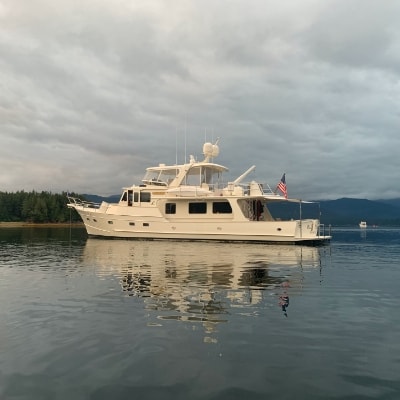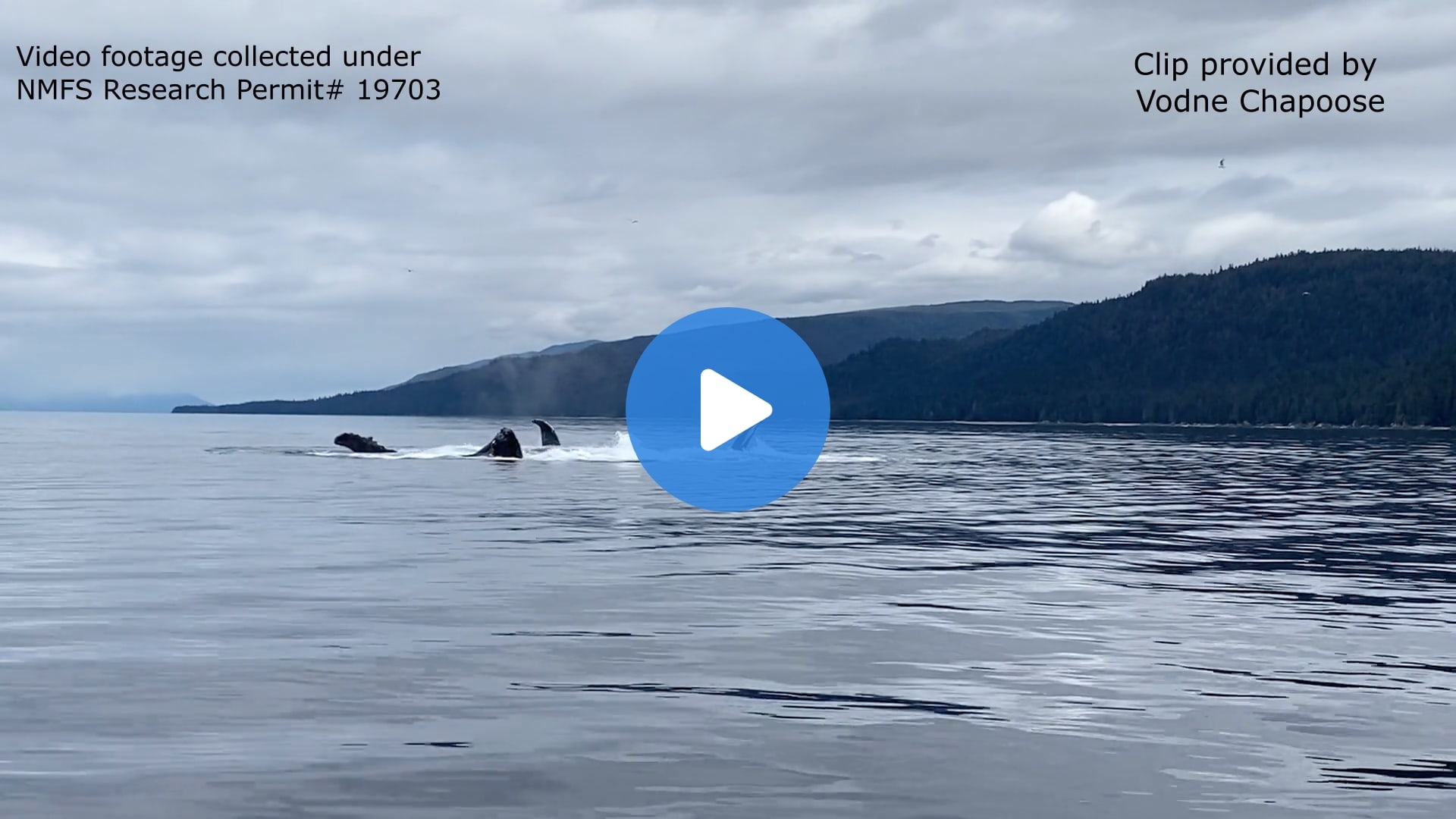Humpback Whale Acoustics Research
DISCOVERY Yacht Blue Pearl
Alexander Archipelago, Chatham Strait, and Angoon, Alaska
August 7th, 2021 - August 17th, 2021
Research Team
Dr. Fred Sharpe, Ph.D.; Dr. Brenda McCowan, Ph.D.; Dr. Jim Crutchfield, Ph.D.,
Purpose of Research
The purpose of this research is to observe and record the vocalizations of whales in an effort to decode their language, which may provide data for mathematical models of non-human communication.
Duration of Project
August 7th, 2021 - August 17th, 2021
Project Overview
The International SeaKeepers Society facilitated a multi-discipline research expedition centered around humpback whale acoustics and vocalizations. The expedition took place over ten days in August, in Southeast Alaska aboard the DISCOVERY Yacht, Blue Pearl, a 65' Fleming owned and operated by Don and Denise Bermant. The scientists leading the expedition were Dr. Fred Sharpe of the Alaska Whale Foundation, Dr. Brenda McCowen of UC Davis, and Dr. Jim Crutchfield also of UC Davis. The P.I. of this project is Dr. Laurance Doyle of SETI (Search for Extra-Terrestrial Intelligence). However, he was unable to attend this leg of the project.
As we made our way through the Chatham Strait, a narrow passage of the Alexander Archipelago, we came to the village of Angoon where we encountered a big pod of humpback whales (we estimated about 9). While there, we lowered a hydrophone (underwater microphone) into the water and listened, observed, and recorded all the vocalizations and sounds made by the whales. Eventually, these sounds would be played back to the whales with the goal of seeing how they respond, which in turn will help decode their language. Eventually, this kind of research will not only help us understand non-human intelligent communication here on Earth but it can also be applied to decoding and understanding potential extra-terrestrial communications.
Additionally, most of the research team are graduate level students at California State University Long Beach, completing a Masters program. This research will be used to complete their theses, thus launching the careers of future marine scientists.
Application
If whale communication can be decoded and understood, the process by which this is done, as well as the strategies whales employ to communicate with one another can be used as a proxy for understanding other intelligent non-human communication on Earth, or for the possible observation and comprehension of communication from extra-terrestrial life.
Expedition Goal
This expedition saw the observation and recording of whales' sounds and vocalizations while they were communicating with eachother. The recordings were then played back to them with the intention of seeing how the whales respond. This effectively helps decode their language.
Location
Alexander Archipelago, Chatham Strait, and Angoon, Alaska


